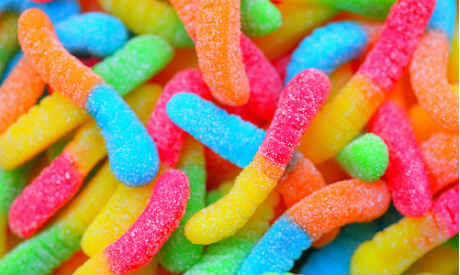
Food shouldn't be complicated. Just a few generations ago, it rarely was. But our modern predilection for salty, crunchy things in foil bags has changed the game. So we modify, if ever so slightly…we swear to home-cook more often, we read labels for suspect ingredients, perhaps we even eliminate certain things from our diet altogether. Maybe even going all the way vegan.
While the "everything in moderation" rule is a pretty darn good one, sometimes, though, we don't want to compromise. This can particularly true if you adopted a vegan diet not just for health reasons, but ethical ones, too. It can take a keen eye to spot unsuspecting animal products in food. Have any of the following ingredients slipped past your radar? You may want to give your labels another read as avoiding these commonly overlooked ingredients is not just ethical, it's healthier, too.
Read more about vegetarian and vegan diets
1. Bone char: According to PETA, cow bones are often used in sugar production, but you'll most likely see it listed as "natural carbon." It's widely used in U.S. sugar production to give the sugar a consistent color.
2. Animal shortening: Also called lard or simply "shortening," it's fat from an animal source (usually pig or cow). While it's difficult to find pure animal fat sold in supermarkets, it is still used in baked goods and some ethnic foods, such as refried beans. If a product doesn't specify "vegetable shortening," you may want to opt for something else.
3. Gelatin: To not love Jell-O growing up was un-American! But besides the sugar and artificial flavoring, there's another reason not to love it anymore: gelatin. This gelling agent can come from hooves of pigs and cows, or from fish, and is widely used in a number of food products that are typically bad for you such as gummy anything and marshmallows. As well, it can be found in vitamin and supplement capsules. It's been an ingredient of concern over the risk of transmission of bovine spongiform encephalitis, also known as Mad Cow disease. Opt instead for agar or Irish moss (seaweeds) and make sure to read your
4. Carmine: Red colored foods and cosmetics may boast more than just a ripe color: Try beetle shells. Carmine may also be listed as: Crimson Lake, Cochineal, Natural Red 4, C.I. 75470,or E120 and can be found in candies, yogurts, cereals, juice and energy bars. You can also find it in lip color, blush and eye shadows.
5. Confectioner's glaze: Also known as pharmaceutical glaze, resinous glaze, pure food glaze and natural glaze, you'll want to look for this ingredient on your favorite chocolates and candies. It's also another one found on vitamins, supplements and pharmaceuticals pills or tablets.
6. Fish bladders: Unfortunately, you won't see this one listed on your beer or wine as it's not an ingredient, but used as a filter in production. It's an old method of straining off the pulps used in making certain alcohols, and many companies still rely on this method today. Check out Barnivore.com for its growing list of vegan verified beers, liquor and wine.
Keep in touch with Jill on Twitter @jilletinger
Photo credit: Pink Sherbet Photography




